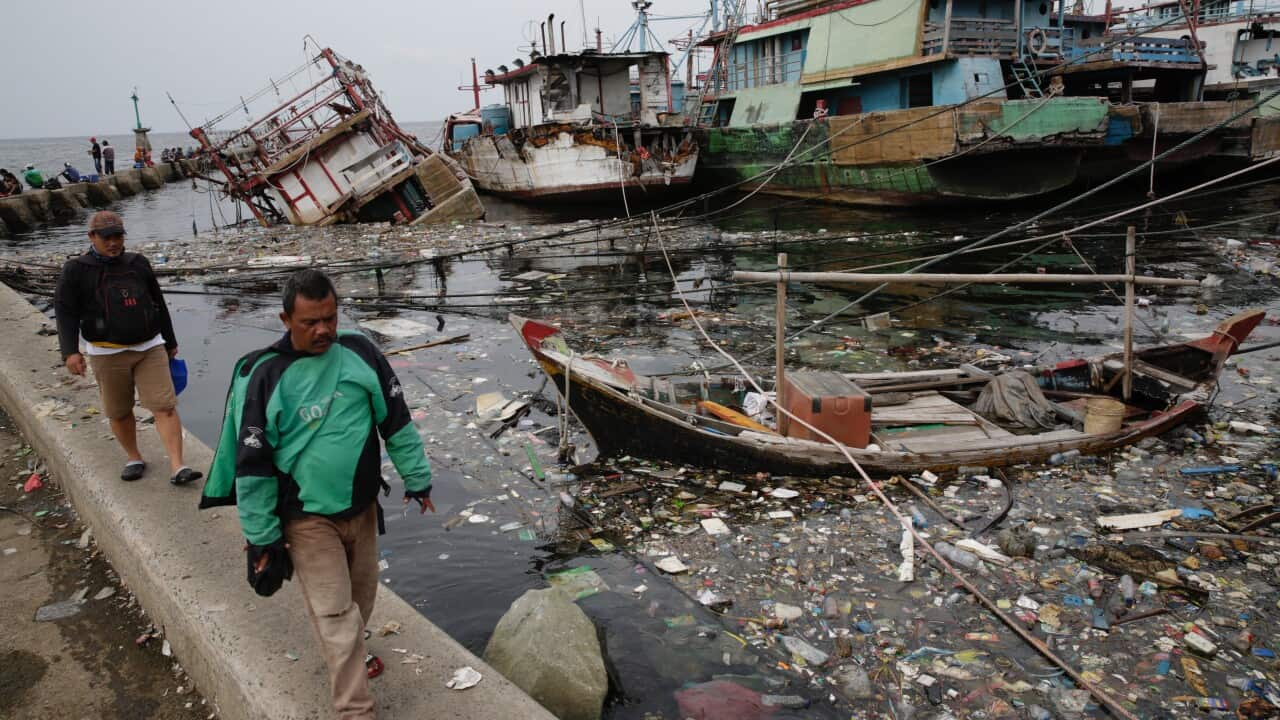Key Points
- Average global sea surface temperatures are rising by 0.13 degrees per decade.
- At least 14 million tonnes of plastic end up in the oceans every year.
- Plastics make up 80% of all marine litter.
The United Nations takes the first global step towards a legally binding treaty on the production of plastics and the waste they generate.
Scientists and leaders from around the globe are hoping for a radical change for the oceans, as fishing, plastic and climate change continue to pose major threats to the health of marine ecosystems.
Lucy Woodall, Professor of Biology and Marine Conservation Policy at the University of Exeter in the UK, explained that the impacts are visible around the world.
Pr Woodall said that there are many issues that have a huge impact on the ocean as to how it works and the benefits it provides to us and the whole planet.
The United States National Oceanic and Atmospheric Administration reports that the average global sea surface temperatures have been increasing by about 0.13 degrees per decade over the past 100 years.
By 2050 the mass of plastics is expected to exceed that of fish in the ocean.
However, fishing and climate change are not the only factors threatening the oceans.
The International Union for Conservation of Nature has revealed that at least 14 million tonnes of plastic end up in the oceans every year.
The International Union claims that plastics make up 80% of all marine litter, from surface water to sediments on the ocean floor.
The Ellen MacArthur Foundation predicts that by 2050 the mass of plastics is expected to exceed that of fish in the ocean.
Dr Woodall, from the University of Exeter in Britain, said that plastic pollution is a serious problem.
She noted that microplastics have been found in all surveys that have been carried out to examine the presence of the particles.
The United Nations has come to an agreement to draft a new treaty to end plastic pollution.
This is a preliminary but crucial step towards addressing one of the most persistent sources of human waste.
The UN Intergovernmental Committee on Plastics brought together representatives from 180 countries, non-governmental organisations and a coalition of scientists.
The Commission discussed regulating thousands of hazardous chemicals contained in plastics, as well as protecting the rights of people disproportionately exposed to plastic chemicals and waste.
But why is it important to take such extreme measures?
Dr Jane Holden, from the Institute for Sustainable Development at Monash University, Melbourne, Project Manager for the Citarum River Transformation Project in Indonesia, explained that there are vast stretches of ocean where there are no regulations to protect them.
It is therefore important that these marine areas are conserved and managed in a way that ensures their sustainability.
Dr Holden's work, which is being carried out in partnership with organisations in Indonesia, addresses plastic pollution affecting vulnerable communities living along the Citarum River in the country's West Java.
So as the United Nations tackles plastic pollution in an effort to protect the oceans, what should countries like Australia prioritise?
Cassandra Brooks, Assistant Professor of Environmental Studies at the University of Boulder, Colorado, USA, said that one of the most important actions we need to put in place is to reduce global greenhouse emissions.
She explained that this needs to be done immediately and large-scale protected areas need to be created.
Dr Holden, from Monash University, mentioned how citizens in Australia can afford to put these global targets into practice on a daily basis.
She stressed among other things that we need to reduce our plastic consumption through our consumption habits.
She concluded by saying that if we use plastic then we need to find ways to reuse them or recycle them in the bins provided by the local councils.
The next round of talks is scheduled this year in Kenya and a final agreement is expected by the end of 2024.







